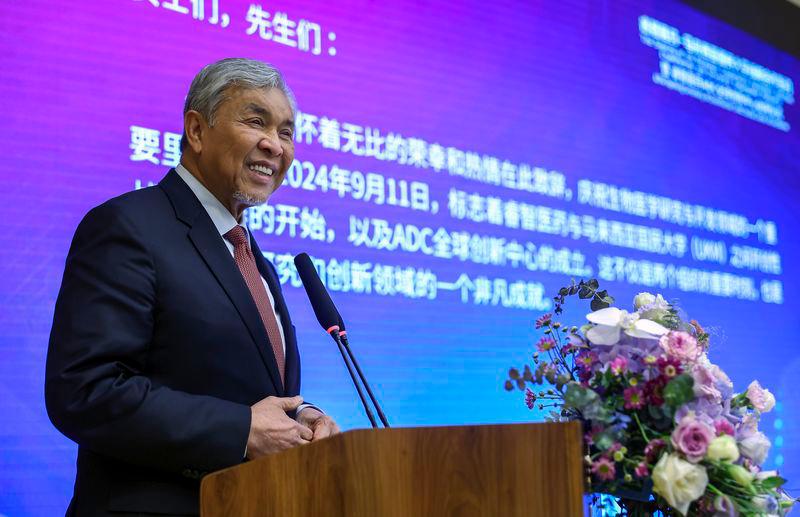SHANGHAI: Any decision on the proposal to make halal certification mandatory for all restaurants and food operators is under the jurisdiction of the Conference of Rulers, according to Deputy Prime Minister Datuk Seri Dr Ahmad Zahid Hamidi.
He said the issue should not be turned into polemics as it is still in the proposal phase and has yet to become a permanent policy.
In fact, he said no party should feel threatened by the proposal for mandatory halal certification.
“Furthermore, matters related to religion, including halal issues, are under the jurisdiction of the Conference of Rulers. If the study finds that halal certification should or should not be made mandatory, we will leave it to the Rulers to decide. If the matter is brought to the Cabinet, we will follow the advice of the Prime Minister (Datuk Seri Anwar Ibrahim) to ensure that this issue is not turned into polemics.
“We must respect the current system. Even though I am the chairman of the Halal Malaysia Council, I will certainly take a cautious approach regarding the findings of the study,” he told the Malaysian media on the last day of his working visit to China today.
Yesterday, Communications Minister Fahmi Fadzil said that Prime Minister Datuk Seri Anwar Ibrahim has requested a report on the issue of halal certification and wanted it to be presented at the Cabinet meeting next week.
He said Minister in the Prime Minister’s Department (Religious Affairs) Datuk Mohd Na’im Mokhtar had also been asked to look into the next steps that can be taken.
On Sept 6, Mohd Na’im reportedly said that the Department of Islamic Development Malaysia (Jakim) was considering a proposal to make halal certification mandatory for restaurants and food companies that did not serve pork and alcohol.
The issue sparked controversy when Seputeh MP Teresa Kok responded by saying that the implementation of halal certification should be voluntary to allow operators to make decisions based on market demand, not by compulsion.
Ahmad Zahid said that obtaining halal certification requires applicants to meet specified conditions to ensure the application process runs smoothly and without interruptions.
He also reminded all parties not to accuse Jakim of being ‘slow’ in issuing halal certificates.
“Previously, the process took nine months to complete. However, through an understanding between the Halal Malaysia Council and Jakim, it was reduced to 23 working days and is now further shortened to 15 working days from the date the application is submitted, provided all requirements are met,” he added.









